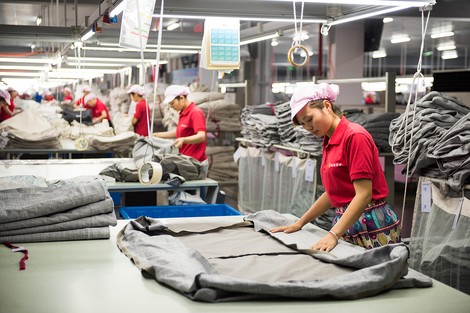Your podcast discovery platform
Curious minds select the most fascinating podcasts from around the world. Discover hand-piqd audio recommendations on your favorite topics.

piqer for: Climate and Environment Global finds Globalization and politics
I'm a freelance journalist, currently based in Madrid. I used to be a News Producer at CNBC in London before, but I thought a little bit more sun might do me good. Now I write for several news organizations, covering a range of topics, from Spanish politics and human rights for Deutsche Welle to climate change for La Marea.
China Is Reducing The West's Carbon Footprint
When we talk about climate action and policy, we often refer to national emission reduction goals. This is usually interpreted as a cutback in the number of tons of CO2 that get spewed into the atmosphere in that particular nation.
We then see China: The world's largest climate polluter. But what if China was not the culprit?
Climate change is a global issue. Dividing it according to national boundaries can be useful as an administrative strategy, but to understand its dimension, one must take into account global interactions, including trade and international policy making.
This article is a summary of a very interesting study, written by the authors themselves. In it, they analyse China's role in the reduction of the carbon footprint in developed countries (particularly in the US and the EU).
Here's an important distinction: Production-based emissions matter, but they mean nothing if they're not studied along with consumption. In this way, as American and European industries externalised their production to China and India, they reduced their emissions. However, because consumption increased, the carbon footprint of the developed countries (their consumption-based emissions) increased.
In the 2000s, production-based CO2 emissions in developed countries declined while their carbon footprints grew.
But what if a financial crisis hit consumption and, simultaneously, China was to change its policies, to reduce its own production emissions, without sending them abroad? Exactly. It would reduce our own footprint. And that's what I call climate leadership.
The takeaway: The global financial crisis has led to weaker growth in export volumes, and China has implemented stronger climate policies, in combination leading to a decrease in Chinese emissions from the production of exported products.
In addition to a very interesting topic, this article features one of the most important ideas in climate action: Your impact can grow even if you reduce your emissions.

Source: Glen Peters, Robbie Andrew, and Jan Ivar Korsbakken Image: Meritzo/Alamy Sto... carbonbrief.org